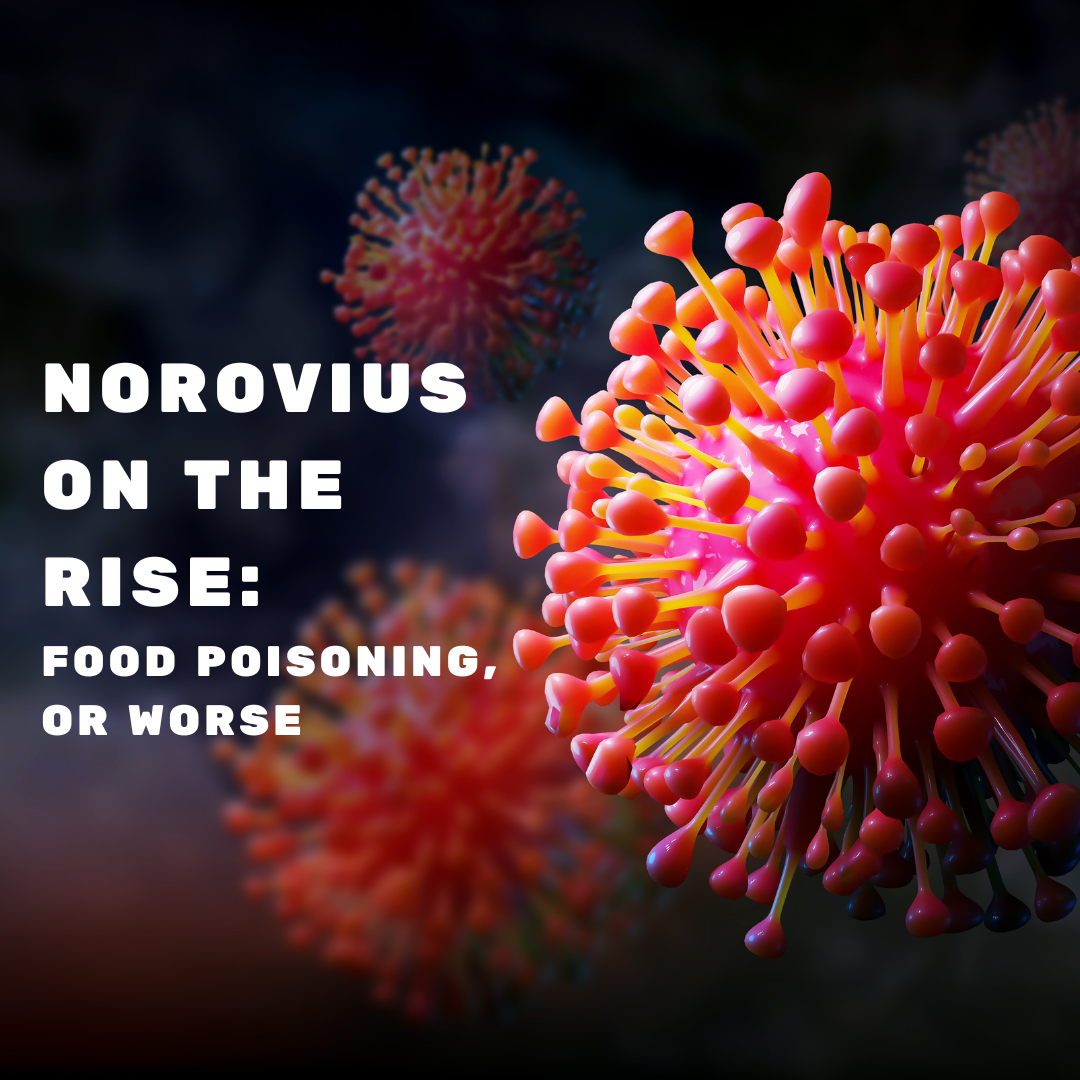What’s one of the worst things that winter brings? Plenty of sicknesses. Common colds are attributed with sore throats, stuffy noses and raging headaches. Cold weather allows for viruses to linger in the air for longer periods of time while spreading further lengths. Cases of Influenza, COVID-19 and Pneumonia have all been on the rise since mid-November, characterizing this gloomy season with physical dread.
A particular virus has been making a name for itself in recent years called Norovirus. It is an airborne illness, which can be spread from contact with humans, contaminated surfaces or even through food. While most cases aren’t severe or life-threatening, the illness is highly contagious.
While a typical stomach bug results in mild vomiting and diarrhea, norovirus involves those same symptoms at a much more severe level. I contracted the virus on Dec. 22 and I did not experience any relief from vomiting and diarrhea until Dec. 25.
What one may think feels like food poisoning can quickly be summed up to a case of the norovirus due to one major difference. The exaggerated number of times one vomits while they are sick. Instead of throwing up no more than 10 times like I would with a typical case of food poisoning, I threw up 35 times from Dec. 22-Dec. 23. After the intense sessions of vomiting, it impacts your stomach producing tight stomach aches.
Stomach aches from vomiting come from the muscle contraction of the large amounts of fluids leaving your stomach. The constant vomiting also induces mild headaches and a sore throat from the sheer amount of it. From my experience, I took Pepto-Bismol and Imodium which greatly subdued my stomach aches and diarrhea.
Once the vomiting and headaches have subsided, the only remaining symptoms are stomach aches which typically last up to two weeks. After your stomach has contracted to such a small size, it needs to gradually recover by eating small portions of food and day by day testing the amount of food your body can intake without resulting in a stomach ache.
I ended up fully non contagious by Jan. 1 and by Jan. 3, I saw a full recovery of my symptoms where I was able to eat large meals with no side effects. Throughout the stomach recovery period, the virus still lives in your body meaning you are still contagious for as long as two weeks.
The best way to discourage the spread of norovirus is to wash your hands thoroughly and often. Contamination through surfaces and food and contact with humans are the top spreaders of the virus and maintaining a clean environment and body will protect yourselves and others from contracting the virus.
If you have contracted it once you can still contract the virus again. While your body may build up a light immunity to a certain strand of norovirus, there are multiple different strands, which means that there’s always a chance to pick it up again.
*Editor’s note: Max Cole is a student writer. All views expressed in the commentary are his own and are independent of the district, Rouse High School and the publication.


